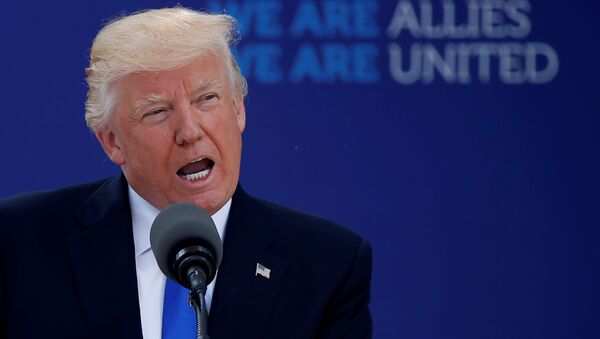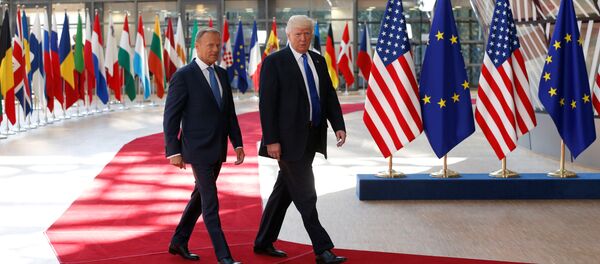BERLIN (Sputnik) — On Thursday, Trump said that 23 of the 28 alliance members were not meeting the spending target and many of those nations "owe massive amounts of money from past years and not paying in those past years."
"In fact, [Trump's] Europe trip, the NATO summit, had to boost dependability in transatlantic relations. What happened was a singular historic ambiguity, which Donald Trump projected in his speeches in the last few days, especially [on Thursday]," Ischinger told the German ZDF broadcaster.
According to the German diplomat, NATO members could not be expected to reach the 2-percent of GDP defense spending threshold, which was set at 2014 summit in Wales as a goal, in the near future.
On Thursday, NATO members agreed to produce yearly national plans detailing steps to increase their defense contributions, which came as a response to the United States repeatedly urging all alliance members to boost their spending.
Only a handful of NATO members have reached the 2-percent target as of 2016. The United States is the top spender, allocating over 3.6 percent of its GDP on defense, followed by Greece, the United Kingdom, Estonia and Poland. The remaining 23 members are below target. Germany spent just 1.19 percent of its GDP on defense last year.


